Hi Nicole, please introduce yourself. Where are you from, what are you doing in France, and what were you doing before you arrived?
I am originally from California, and was working in a different career before changing paths and deciding to go to pastry school in Paris in 2010. I have since made a life and family here and I currently work for a chocolatier on the Basque coast in the southwest.
What brought you to France? How long have you been in the country?
I was captivated by the country and the culture from my first visit as a tourist in 2004. I knew I wanted to eventually fulfill long-term dreams of both going to pastry school AND living abroad. When I looked into culinary schools, I was surprised to learn that the tuition at a reputed school in Paris was actually cheaper than the school I was looking at in the U.S.! And I was able to take out a student loan to help me get there (after a few years of financial planning to make it all happen). I was in Paris for one year, and came back to live in the southwest of France in 2014. I have now lived in the country for a total of 5 years.
What is the process of moving to France
I first came to France on a student visa. I went through the normal application process for culinary school there, and once I was accepted to the school I applied for the student visa at my local French consulate. When I first arrived in Paris, I rented a short-term rental while setting up a French bank account, and looked for an apartment soon afterwards, which I found on Craigslist. There is also France's classifieds site, Le Bon Coin, which I didn't know about back then, but I am sure nowadays there are even more listings for rentals and job offers. When I came back in 2014, it was to intern at restaurant on the Basque coast. I soon after met my husband, so I asked for a long-term visa at the French consulate back in the U.S. We got married within the year and I was able to ask for a Carte de Sejour (a residency card) that is renewed annually or multi-annually depending on how long you have been in the country.
What is your favourite thing about France, and what is your least favourite thing?
The food/wine/pastry of course, and I love that these things are so important culturally. It brings people together. My least favorite thing are the inconveniences such as supermarkets closed on Sunday after 1pm, and transportation strikes that can really throw your travel plans out of whack.
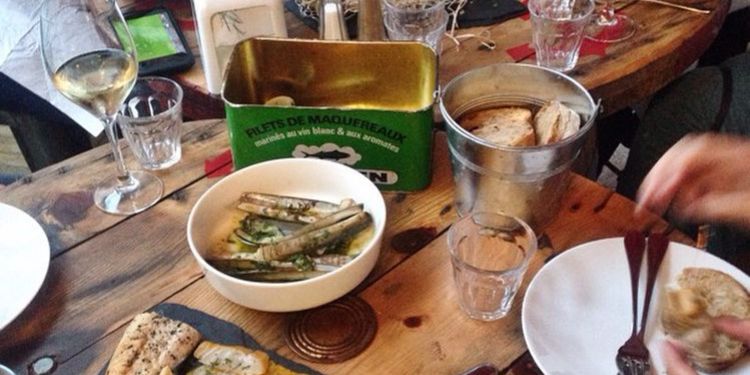
How would you describe France in one sentence?
Beautiful, convivial, gastronomic, proud, cautious yet life-loving.
What has surprised you the most about France?
People are very family oriented, it is important to sit down to eat together every evening and talk about your day, catch up on the latest things that are going on. People like to talk here! I joke that you cannot get together for apéro (happy hour) with friends without spending at least 5 hours with them! Another thing that really surprised me in a good way: when I was 6 months pregnant and visiting Paris, I was given a seat on the Metro (subway) every single time, whether the person was young/old, male/female, they gestured me into a seat without me even making eye contact with them. You get the feeling that family and child care is really valued here.
How is today's expat job market in France?
I would say as in most countries at the moment it is difficult to get in without a company sponsoring your visa to begin with. But if this is not an option, in addition to coming in as a student there is a special type of multi-year visa in France called a "talent passport". The talents visa was designed to help expats develop France's economic attractiveness, whether you plan to create a company or build an innovative project in France, or are creating artistic or literary work.
How easy or difficult it is to find accommodation in France, and what type of accommodation is available for expats?
I think it really depends on where in the country you are living. Most people in big cities live in apartments. In a big city such as Paris, you may have to spend a lot of time looking for attractive/affordable housing. But I and many others have been lucky with Craigslist or Le Bon Coin.
What are the biggest holidays in France?
Christmas is definitely important for a lot of people, to get together with family and eat a good meal and drink champagne with loved ones. City centers are strung with different types of beautiful light installations. And it's always exciting for me to see the different pastry shops versions of the buche de noel (Yule log cake), a traditional Christmas pastry.
What is some essential etiquette in France?
La bise (kissing on the cheek) when you greet others, whether it's family, friends, or being introduced to new people, and sometimes even coworkers. It is always important to say bonjour when you first enter a room of people, a shop, or a restaurant.
How do you find the lifestyle in France?
I've lived in a few great cities in the U.S., but I have to say that my quality of life is best where I live now (on the coast of the Basque region, in the very southwest). I'd say overall, there is a very high quality of life in France: 5 week minimum vacation (which you start accruing as soon as you start working), universal healthcare (France's doctors are always rated at the top of the list by the World Health Organization, and my experience with healthcare here has been very good), subsidized childcare, free preschool, and university. I do think that we pay somewhat higher taxes here than in the U.S., but with all of the advantages that you can have here, it really is worth it. And not to mention that it is a beautiful, culturally rich country.

How is the transportation system in France? How do you move around?
I am grateful for the TGV, the high speed train that can move you between the cities in seemingly very little time. There is now a TGV that is 4 hours from Biarritz to Paris. It is comfortable and takes you right into the city center, as opposed to the Paris airports which are somewhat far. In the Basque region there are buses to get around as well as local trains, but I use a car. It is necessary where I live if you really want to take advantage of living in the area. I was obligated to pass the driver's test (written and driven) in France, even though I had already been driving in the U.S. for 20 years, because they do not accept the California driver's license as an equivalent. I believe that there are only 10 U.S. state licenses are accepted as an equivalent here. If you don't have an equivalent, you have up to one year from the time you start living in France to pass the driver's test here.
How is everyday life for you in France? Do you feel that you have adapted to your new life?
I think you can live almost anywhere if you have something you do that makes you happy, and good people around you. I live in a surf town in the Basque region that has a "California in France" feel to it, so that definitely plays a part in why I feel at home here. The quality of life in this part of the country is also very good. And I live about a 15 minute drive away from work, so I don't spend a lot of time commuting like I did back in California. Since deciding to build my life here in the Basque region, I am fortunate that my husband really did a lot for me so that I could feel easily acclimated and comfortable. I have been lucky also to have met a lot of really great people here, friends and my family-in-law. I think it also helped that I really put effort to learn French when I arrived in Paris, and I could speak the language almost fluently after my first year of living in the country.
What do you do in your free time?
Besides hobbies that I would do anywhere (yoga, watching movies, and testing out pastry recipes), we spend a lot of time enjoying the outdoors in the Basque region. There are beautiful beaches here, breathtaking scenery of green rolling hills and the Pyrénées mountain range, and lovely hikes ranging from easy to quite challenging.
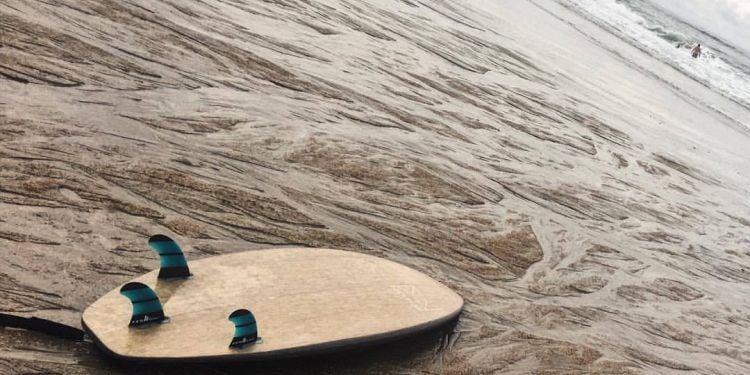
Are there activities for people who enjoy nightlife?
In the city centers of Biarritz and Bayonne, there are always bars, places to dance on the weekend, and lots of good restaurants. People who visit here are actually pleasantly surprised at the throng of people enjoying happy hour at various wine bars and pubs in the evening. In the summertime, there tends to be a lot more people and more options for nightlife such as festivals, beachside bars, and a pop-up warehouse-sized bar with food trucks and a rotating music schedule.
What new habits have you developed in France?
I definitely eat a lot more vegetables and fruits! Eating according to the seasons is very important here, and we receive a box of organic vegetables every week from our local farmer's market. We also only buy fish or meat fron the local fish maker or butcher, never at a grocery store. And fresh bread from our favorite boulangeries in the area. Buying from these local shops is a very typical French habit.

And what old habits have you quit in France?
Eating takeout as often as I did in New York and California! The people I know here do love to eat in restaurants, but they also value a home-cooked meal. With ingredients purchased from the farmer's market or local product shops, even the simplest dishes can turn out great with good ingredients.
What is your opinion on the cost of living in France? For instance, how much does a bus ticket, a beer, and a loaf of bread cost?
The cost of a baguette is controlled in France, you can get a very good one for about 1.20 euro. This is a wine-producing country so a glass of wine is sometimes cheaper than a Coca-Cola in a cafe/bar! The local buses cost 1 euro. Public transport, wine, baguettes, these costs are pretty universal all over France. The cost of housing however, very much depends on where you are living, big city/small city/coastal/country, as is the case almost anywhere.
What is something that you would like to do in France but haven't had the opportunity to do yet?
Going wine tasting and exploring the Burgundy and Alsace regions are very much at the top of my list.

Share your most memorable experience in France.
There are honestly too many lovely experiences to mention. I have been able to see a lot of the country and its beauty, and aside from the cliché of meeting my husband (a beautiful day on its own), I'd have to say those first few days after landing in Paris as a student, and finally having realized my dream to get there, were unforgettable.
If you could do the move to France all over, what would you do differently?
When I first moved to Paris I brought way too many things with me, most of which I didn't end up using. If I could do it all over again, I would arrive with a carry-on (and maybe an empty suitcase which I would fill by the end with baking tools, ingredients, and my favorite wines).
What do you think of the local cuisine? What are your favourite dishes?
It was the food and food-culture that drew me here in the first place! We try to eat a variety of foods/cuisines in my home, but I'd say my favorite traditional French dishes are duck confit or seared duck breast, and all of the beautiful pastries of course! In the Basque region, which is especially known for its cuisine, I love the txuleta (seared t-bone), chipiron (squid) cooked in its own ink, and txangarro, a spider crab stuffed with onions and tomatoes.
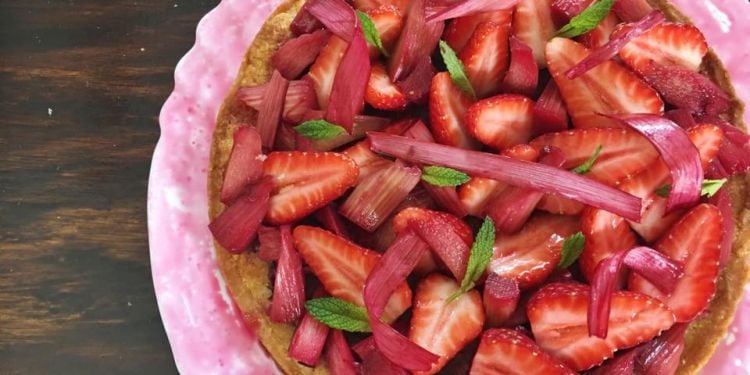
What do you miss the most about your home country?
Besides family and friends, I miss Target and Trader Joes! My husband is now a fan of Trader Joes and asks if we can go there everytime we go back to California! We love all of their snacks. I also miss being able to eat all the different types of cuisines that you can find in a big city. But that just makes me appreciate going back to California to visit even more.
Have you had a moment where you almost felt like leaving France? How did you overcome that? What kept you there?
In my early days as a student, I really didn't know anyone, so I had a moment of having a breakdown and feeling like I had no friends. Knowing that I've wanted this for so long kept me from taking the next plane back! But within weeks, I had friends that I spent a lot of time with outside of school. And by the end of that year in Paris, I didn't want to leave!
Can you give some useful tips that soon-to-be expatriates in France might benefit from.
My most useful tip to you is to take the time to learn the language, it will help you feel more integrated and comfortable, and it will be easier for you to make friends! You can come across a lot of people in big and small cities who speak English, but you will only feel at home if you can be a part of the art of conversation here.
If you had to advise an expat on five items to bring with them to France, what would they be?
Shoes you can wear to explore your surroundings (whether you're in the city or country-side), peanut butter, your KitchenAid (they are much more expensive outside of the U.S. and you can buy a transformer for it), a good coat, and your appetite.
What are your plans for the future as an expat?
My life and family are here in France, so I will stay here for the time being. We are open to moving to another continent for an adventure, but as long as things are in place here and life is good, I think we will stay.
What is one thing that you will take with you from France?
When I came back at the end of my student visa, I brought back two bottles of my favorite wine from Burgundy and many pastry tools/ingredients I never knew had been missing from my life!
If you wish to share your expat story, please contact us.
Thank you!
The Expat.com Editorial Team
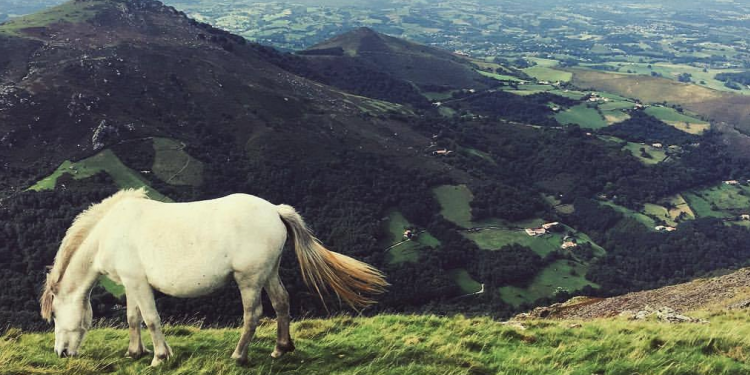


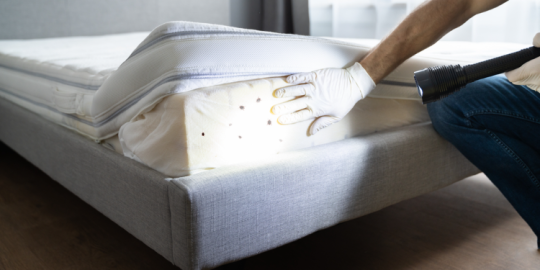













Contact us to be featured in the Interviews section.
Participate